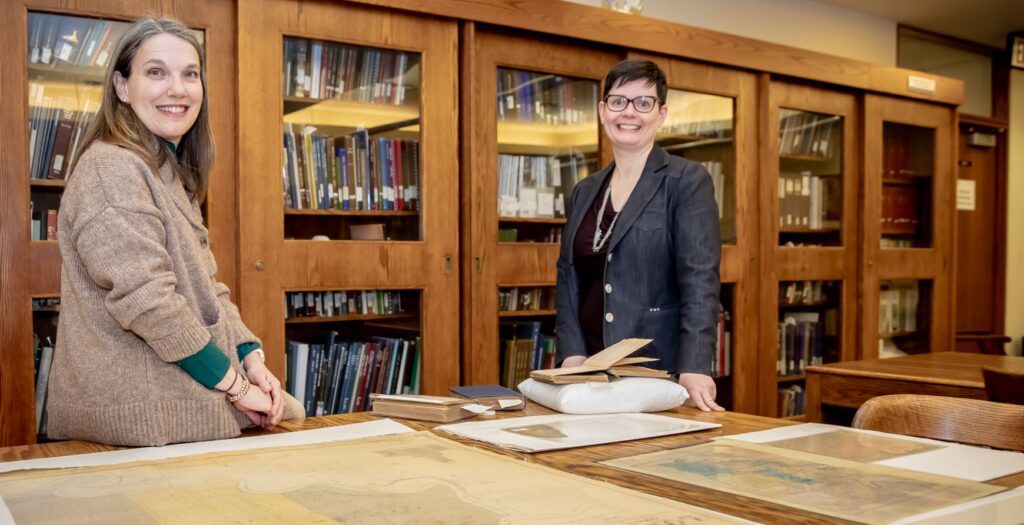Researchers with Western University are hoping to build a permanent digital exhibit dedicated to what happened to formerly enslaved Black refugees that first settled in London, Ont.

Western professors Miranda Green-Barteet and Alyssa MacLean are researching what happened to formerly enslaved people after they settled in London. The research aims to learn more about life for formerly enslaved people after they reached London and even “complicate” society’s understanding of history.
“Complicating the underground railroad means caring about the outcome of the full extent of the lives of these self-emancipated individuals,” MacLean said. “We want to show what happened to them, if we can.”
Speaking with Global News, Green-Barteet says one of the aims in creating the Black Londoners Digital Archive is to address the perception that Canada has always been a welcoming, multicultural country.
“What we are finding out doesn’t necessarily match the perception that we as Londoners and as Canadians have of what the experience of being Black in the 19th century was like,” said Green-Barteet.
“Certainly, what we’re finding when we look at other historical documents and other individuals research is (the Black refugees) faced a fair amount of racism coming to this country.”
Green-Barteet says most information found inside archives of libraries or schools is often not known by the public.
“We don’t think this information is relevant only to academics. We think that anyone that has an interest in the history of Black Londoners or the history of Black Canadians should be able to access it,” Green-Bareet said.
“In creating the digital archive, we are really hoping to create a permanent home for this information that is accessible to everyone.”
The research relies heavily on the work of author Benjamin Drew, an American abolitionist that travelled to Canada in 1856 to transcribe oral stories from Black Londoners that were formerly enslaved. The work of Drew was compiled into the book A North-Side View of Slavery, with a chapter on London focused on 16 people.
Working with Green-Bareet and MacLean on the project is undergraduate student Kathleena Henricus and Ph.D. candidate David Mitterauer.
Henricus is working on compiling a timeline of historical events aligning with the Black newcomers’ arrival. Mitterauer is combing through census data and city directories to track the refugees’ next steps.
“Archival work ordinarily is difficult at best,” said Green-Bareet.
“When it is involving formerly enslaved individuals who fled the United States and didn’t necessarily want to be part of the public record, it’s even harder.”
One issue the researchers face is not knowing if the names Drew recorded are the actual names of Black settlers or pseudonyms used to avoid alerting former enslavers. Green-Bareet says they have already come across two cases where they believe someone used a pseudonym.
Other problems the researchers will have to navigate is that census taking was not a regular occurrence in the 19th century and that some formerly enslaved people did not own their homes, instead living in boarding houses or with friends.
“Relying on census rolls or city documents is not always accurate.”
While there are the usual struggles of archival work, the group has already found some success in identifying six formerly enslaved people that settled in London. Green-Bareet says most individuals they have been able to track stayed in London for a few years until falling out of the historical record around 1865.
“We are trying to determine what that means, what is that connection to what is going on in the United States at that time at 1865 was the end of the Civil War,” said Green-Bareet, adding they speculate people returned to the United States to find or be reunited with family they were separated from.
Currently funded for two years, the Western professors say they hope to acquire more funding as they see their work as a long-term project. Once published, the findings will be used as the foundation for an undergraduate course cross-listed with English and Black Studies.
Green-Bareet says the hope is to expand the research to other cities in Ontario, like St. Catharines and Windsor.








Comments